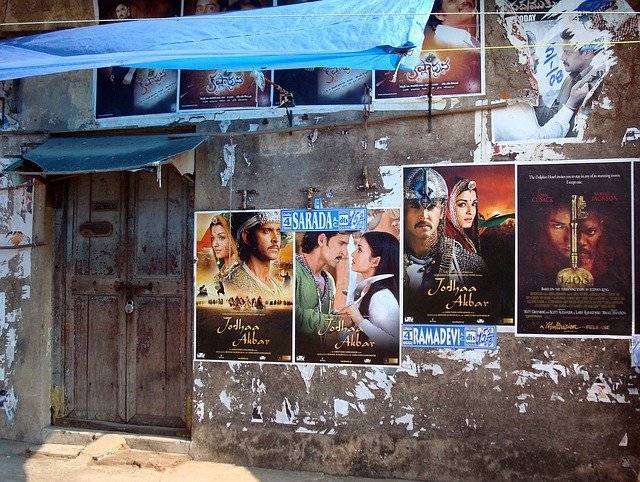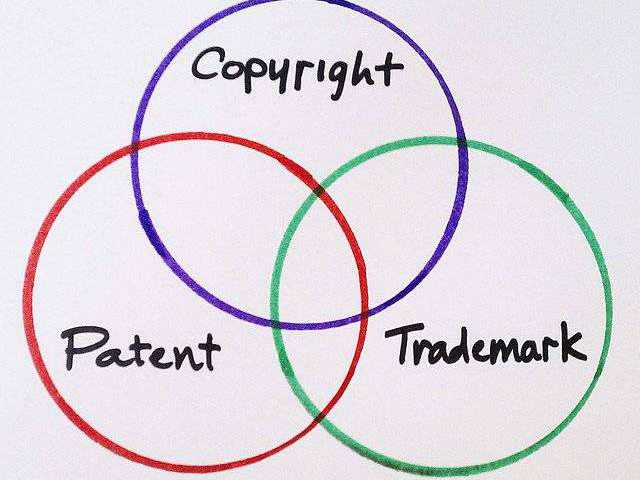Apart from applying for registration of a movie title under the Indian Trademarks Act, there are a number of industry associations to which the film makers look up to regarding protection of their film titles. Indian Motion Picture Producers’ Association (IMPPA), Association of Motion Pictures and Television Program Producers (AMPTPP) and Film and Television Producers’ Guild of India, Film Writers’ Association and Western India Film Producers Association (WIFPA) are the associations that play a big role in protecting the commercial interest of movies. Producers and writers of movies can apply to be members of these associations which enable them to get their titles and scripts registered with these associations. To check whether the same or deceptively similar title has been registered with another association, the association usually verifies this with other ones before registering a title. However such registration with these associations shall not have any effect on any legal proceedings in the court. It can only help to prove whether one is a prior adopter of the title or not.
In the case of Bikramjeet Singh V. Anil Kapoor (CS(OS) 276/2008), an Indian actor and producer, Anil Kapoor had registered the title “shortkut” for his movie – with the IMPPA. Later, Bikramjeet Singh complained about this issue with the IMPPA, stating that he has already got this title registered with IMPPA much before Anil Kapoor. Eventually Anil Kapoor had to finally withdraw the original title of his movie and amended it to “Shortkut- The Con Is On”.
In Thoda Magic V. Thoda Life (CS (OS) 266/2008 Delhi HC) – Yash Raj Films had got their film title “Thoda Pyaar, Thoda Magic” registered the Indian Motion Picture Producers Association (IMPPA). Later on, Indian movie actor/producer Sahil Chadha opposed the makers of the earlier mentioned film as he alleged it to be confusingly similar to his movie “Thoda Magic V. Thoda Life”. Yash Raj Films asserted protection over the said title as it was already registered with the Film and Television Producers’ Guild of India. Sahil Chadha later lodged a complaint with IMPAA. Eventually, both the movies were released without any change in their title.
There have been a number of cases in India of trademark disputes related to movie titles which can be studied to have a better understanding of this issue.
- BISWAROOP ROY CHOUDHARY V. KARAN JOHAR
In this case, Biswaroop Roy Choudhary had applied for registration of the title ‘Kabhe Alvida Naa Kehna’ under Class 41 of the Trademarks Act, 1999 for movies. The same trademark application had been published in the Indian Trademark Journal. The movie’s inauguration ceremony had also taken place. About 40% of the shooting of the movie had also been completed. Karan Johar later used the name for his movie and produced it. This prompted Biswaroop Roy Choudhary to bring an action of infringement against Karan Johar. The High Court has held that a movie title can be registered as a trademark provided they have achieved a secondary meaning. However, in this case due to delay in filing the suit by Biswaroop Roy Choudhary, the Delhi High Court decided the case in favor of Karan Johar. The Honorable High Court after considering the argument of Karan Johar, that a lot of money and time has been spent on the movie which has made it well known amongst people and changing the name of the movie could be detrimental to him and commercially non-viable, allowed the case in his favor.
- NISHABD CASE
In another case, a similar battle started when the much talked about movie starring Amitabh Bachhan and Jiah Khan was released. The title of the movie was ‘Nishabd’ and was made by Ram Gopal Verma, one of the most successful film makers in the Industry. This issue was also handled by the Delhi High Court. The case is as follows.
- KANUNGO MEDIA PVT. LTD. V. RGV FILM FACTORY
The Kanungo Media Pvt. Ltd. had produced a Bengali movie named ‘Nishabd’. However, due to some financial crunch, the movie could not be released commercially. Later on, Ram Gopal Verma produced a Hindi movie with same name ‘Nishabd’. Hence, an infringement action was brought against Ram Gopal Verma. The Delhi High Court held that the movie made by Kanungo Media Pvt. Ltd. was not commercially released and hence was not that popular among the public. As per the court, the word “Nishabd” could not achieve secondary meaning. Therefore, the Honorable Court held the case in favor of RGV Film Factory, upholding its decision in Biswaroop Roy Choudhary case.
It is to be noted that both the above judgments of the Delhi High Court were denounced on the point that, “they defeat the basic purpose of Trademarks. Trademarks Act states that for trademark to be protected it should have distinctive character. Moreover, generic terms cannot be protected as trademarks. Movie names usually consist of generic terms and phrases. Hence, such movie names cannot be protected as trademarks. Only those movie names which have a distinctive character and which do not contain generic terms can be registered.”
The case of Kanungo Media (P) Ltd V. RGV Film Factory proved important in establishing the position of film’s single title and its protection under the Trademarks Act. In this case court laid down certain guidelines regarding protection of film titles. As stated earlier, in order to get protection of film titles, it must be proved that wide reputation of such title is prevalent among the public at large and secondary meaning of the title is acquired. However, the burden of proof lies on the plaintiff to establish that the title of the film has acquired secondary meaning and the court concluded by further stating that the trademark law with respect to protecting the title of a movie in India is similar to the US law of trademark. “Nishabd” a Bengali film produced by Kanungo Media Pvt. Ltd won many awards. Due to insufficient funds it could go on the floors and hence was not popular among the public. The Court held that since the movie was not popular among the general masses, the title “Nishabd” could not acquire any secondary meaning. The Court further held that, ‘Only when a film’s title has a secondary meaning, trademark can be protected and registered’ and ultimately favored RGV Film Factory. This case proved that secondary meaning of a film title is a fundamental requirement and showed that even though a film title is registered it cannot be guaranteed a complete protection unless the title has acquired a secondary meaning.
- SHOLAY CASE
The Sholay case was a prime example where registration of title as a trademark proved to be beneficial for its makers. In 2007, Sascha Sippy, grandson of GP Sippy (producer of ‘Sholay’), filed a copyright and trademark infringement case against Ram Gopal Varma in the Delhi High Court. Ram Gopal Varma had not only produced the film by the name of ‘Ram Gopal Varma Ke Sholay’, but also used the name of the characters from the original movie, Sholay. It is notable that Sholay is one of the most popular and highest grossing Indian movies of all time and it would be justifiable to say that the public associates the title ‘Sholay’ only with the original makers of the movie, thus giving it a secondary meaning. The makers of ‘Sholay’ had not only obtained registration for the title but also for the names of the characters of the movie, namely, ‘Gabbar’ and ‘Gabbar Singh’. Coming back to the legal battle, the infamous controversy carried on for months. However, eventually Varma agreed to alter his movie’s title to ‘Ram Gopal Varma Ke Aag’ and also to not use any of the character names from the original movie.
- HARI PUTTAR CASE
The renowned multinational movie makers, Warner Bros., had moved the Delhi High Court for an interim restraining order on the release of the Punjabi movie, ‘Hari Puttar: A Comedy of Terrors’ alleging that the producers of the Punjabi movie were “guilty of infringing the Warner Brothers Trademarks” due to the phonetic and visual similarity of its title to that of the Harry Potter franchise. The Delhi High Court, however, dismissed the application stating that “a literate or semi-literate viewer could easily discern the two movies on the principle even if there is any structural or phonetic similarity between the competing marks, the real test to determine deceptive similarity is whether the targeted audience is able to discern the difference between the marks”. The Honorable Court also stated that there has been a three months delay in filing the suit on the part of Warner Bros., and cited the principle that “if the plaintiffs stood by knowingly and let the defendants build up their business or venture, then the plaintiffs would be estopped by their acquiescence from claiming equitable relief”. This case also recapitulated that the judicial system in India has been mostly intolerant towards laches and delay in approaching the Court in case of film litigations.
- NOKIA CORPORATION V. MOVIE EXPRESS
Another interesting issue related to movie titles also came up before the Delhi High Court. Shri Shailendra Cinemas, a Telangana based production house had produced a Telugu action thriller named “Mr. Nookayya” in 2012 which was directed by Anil Kanneganti and the producer being D. S. Rao. It is to be noted that this film was earlier titled “Mr. Nokia and Mr. No Keyia”. When the movie was released worldwide on March 8, 2012, it ran into legal trouble when the telecommunication giant Nokia Inc. sued the film makers of “Mr.Nookayya” for infringement of its registered trademark and demanded for interim injunction and ex parte order against the defendants by filing an application in the Delhi High Court. Nokia alleged that “Mr. Nokia” was deceptively and phonetically similar to their registered trademark of the company name “Nokia”. The telecommunication company was able to attain a favorable order from the Court that directed the film producers of “Mr. Nokia” to alter the title of their movie to “Mr. Nookayya Reloaded”. This forced the film makers to release an edited version of the movie worldwide just after nine days of the release of the original movie.
- HUMARA BAJAJ CASE
In 2013, the Indian auto giant Bajaj Auto filed a trademark infringement case against actor and producer John Abraham’s film production house J.A. Entertainment Pvt. Ltd. The case was filed in consequent to the announcement of an upcoming movie by J.A. Entertainment titled as “Humara Bajaj”. The movie producers contended that the title of the movie is derived from the story of the film which was centered on the life of the protagonist in the movie named ‘Sanjay Bajaj’. It is to be noted that Bajaj Auto Ltd. has been consistently using the tagline “Humara Bajaj” as a part of its promotional campaigns in relation for its much popular scooter Bajaj Chetak. Even though the production of Bajaj Chetak stopped in 2009, Bajaj Auto continued using the tagline in its corporate campaigns. As a result, when the automobile giant came to know about the movie title to be confusingly and deceptively similar to their highly commercial tagline, it prompted them to file for permanent injunction against the production house to stop using the same title for their movie. On Sep 21st 2013, the Bombay High Court in its order restrained the defendants from using the mark “Bajaj” and “Hamara Bajaj” anywhere in relation to the proposed film as well as its usage in respect to the cinematographic movie production in any manner, hence, granting a permanent injunction against J.A. Entertainment Pvt. Limited from using ‘Hamara Bajaj’ as a movie title. The Court was of the opinion that the title “Humara Bajaj” is used in this case in the descriptive sense and not as a ‘trademark’ as it helps in describing the movie. According to the Court, the goal of trademark law is to prevent confusion, and not to confuse the consumer about the two same titles.



